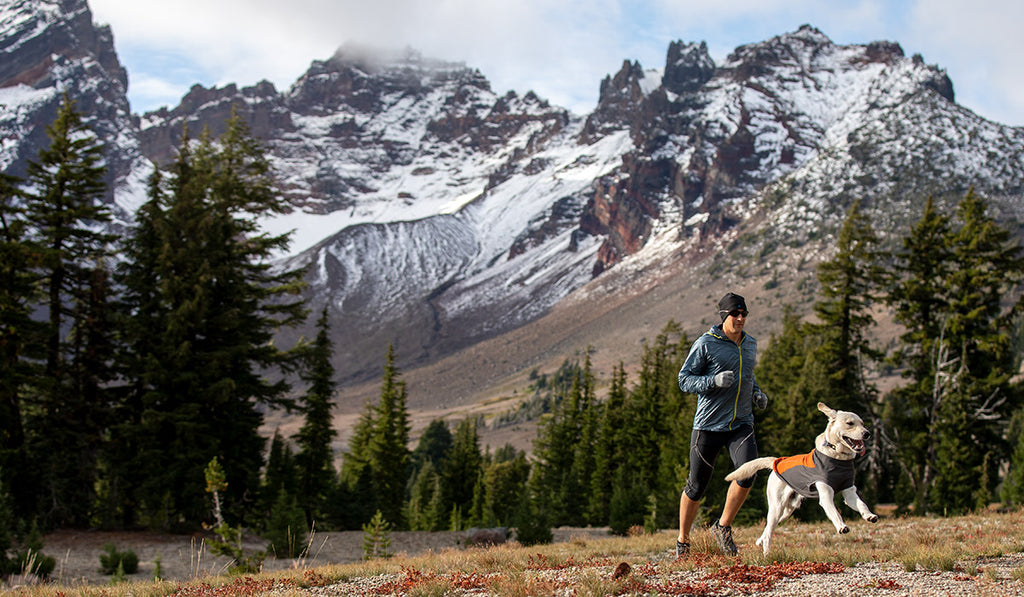COMMITTED TO PERFORMANCE. COMMITTED TO SUSTAINABILITY.
As a company dedicated to making great gear, our definition of success includes embracing our responsibility to both our community and our planet. We’re conducting our business in a way that maximizes the good we can do in the world while being mindful of the impact we have on the environment.
Part of our sustainability strategy involves pursuing supplier relationships with bluesign® certified facilities and sourcing bluesign® approved materials for the gear we build. It also involves a partnership with bluesign technologies on a brand level. In early 2021, we joined 79 other industry-leading brands as a bluesign® system partner. Together, we're all on a path to lessen environmental impact and create a brighter and more responsible future for our companies and industries.

bluesign® certification and environmental impact are considered right alongside performance in our design process. It’s not performance over sustainability or sustainability over performance – we strive for both.

WHY BLUESIGN®?
The textile industry is big. 62 million tons, big. That’s the estimated consumption of textiles back in 2015, with a shocking amount of it eventually being landfilled or incinerated (1 garbage truck full every second).
And the textile industry can be dirty. Chemicals, waste, pollutants, resource depletion, hazardous working conditions. When you consider how those 62 million tons are manufactured, the cost – to both the environment and humans – is staggering.
It’s overwhelming. We get it. The good news is there’s also growth in the efforts to choose ethical, sustainable methods over the toxic and harmful ones.
Enter bluesign technologies. They're a team of chemical experts, systems specialists, manufacturing gurus, and production pros changing the world by changing the environmental and social impacts of manufacturing textiles, and helping more and more brands do so. We like to picture them wearing capes because, in our minds, they're superheroes.

[Markers of a bluesign® system partner are clean facilities, advanced technology/equipment, sophisticated set-ups, and diligent chemical inventories and release protocols – all of which can be found in this dyeing mill facility.]
WHAT BLUESIGN® STANDS FOR
bluesign® was established back in 2000. The team works independently to trace and verify a material’s path along every step of the manufacturing process – from chemicals, fibers, and dyes to the final product and the hands that craft them. It’s a complex journey, but that depth of assessment is what leads to greater transparency and the ability to improve.
bluesign® assesses facilities for chemicals management competency, waste, and recycle stream proficiency. More importantly, they act as a resource for those facilities, working together to improve efficiency and safety across their operation.
Because of their stringent certification process, you can count on materials coming out of bluesign® certified facilities to be safer and more sustainable for the environment, workers, and you.

[A look at Woojin – one of our major plastic hardware suppliers that is bluesign® approved facility. We source lots of the small components like 3-bar adjusters and uniloops from Woojin.]
HOW DOES BLUESIGN® WORK?
For a bluesign® approved fabric, it all starts at the textile mill. bluesign® auditors rate the mill’s air and water impact, listing areas of concern and guiding them towards sustainable alternatives (like organic and recycled fibers, eco-friendly dyes and chemicals, and wastewater and chemical recycling). They must meet strict standards for pollution control.
bluesign® also consults about their manufacturing processes – the more efficient a facility can operate, the more they can reduce overall water, energy, and chemical use.

[Being a bluesign® system partner is a source of pride. At Woojin – one of our major plastic hardware suppliers – these bluesign® signs are posted around the facility.]
bluesign® works with these facilities to implement safety features and oversee labor practices throughout the production process to help protect workers. Their extremely strict chemical safety requirements for textiles further protect the workers (and even the end-consumer) from exposure to harmful chemicals.
The same standards are applied in bluesign® certified factories that then carry out the production process for brands that are bluesign® system partners.
WHERE YOU'LL FIND BLUESIGN® IN RUFFWEAR GEAR
Currently, you can find at least one bluesign®️ approved component (fabric, webbing or hardware) in 81 of our current styles (roughly 77%). And 64 of those are using bluesign®️ approved fabric, like in the Home Trail™️ Hip Pack, Front Range®️ Harness, and Stumptown™️ Jacket to name a few.

bluesign®️ approved fabrics account for about 59% of the volume of our fabric consumption (in yards). bluesign®️ approved components account for about 81% of our plastic hardware consumption (in number of pieces). These figures are up from 37% and 75% respectively in 2021.
We also increased our number and percentage of bluesign®️ system partner suppliers from 16 in 2021 (12 of which supplied certified materials) to 22 in 2022 (19 of which are supplying certified materials).
We’ll keep improving upon that number during every design phase, setting milestones to hit each year.
As we do, you’ll start to see “bluesign® approved material” in our materials list more and more. When you see it, it's a good indicator that you're on the right track when looking to make environmentally-minded choices for your dog's gear.
